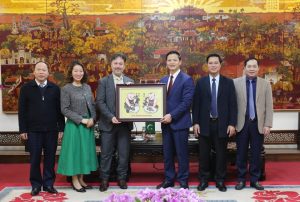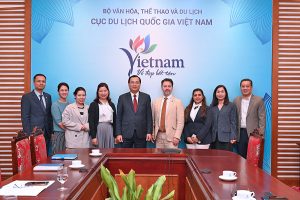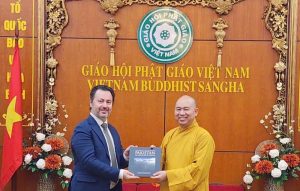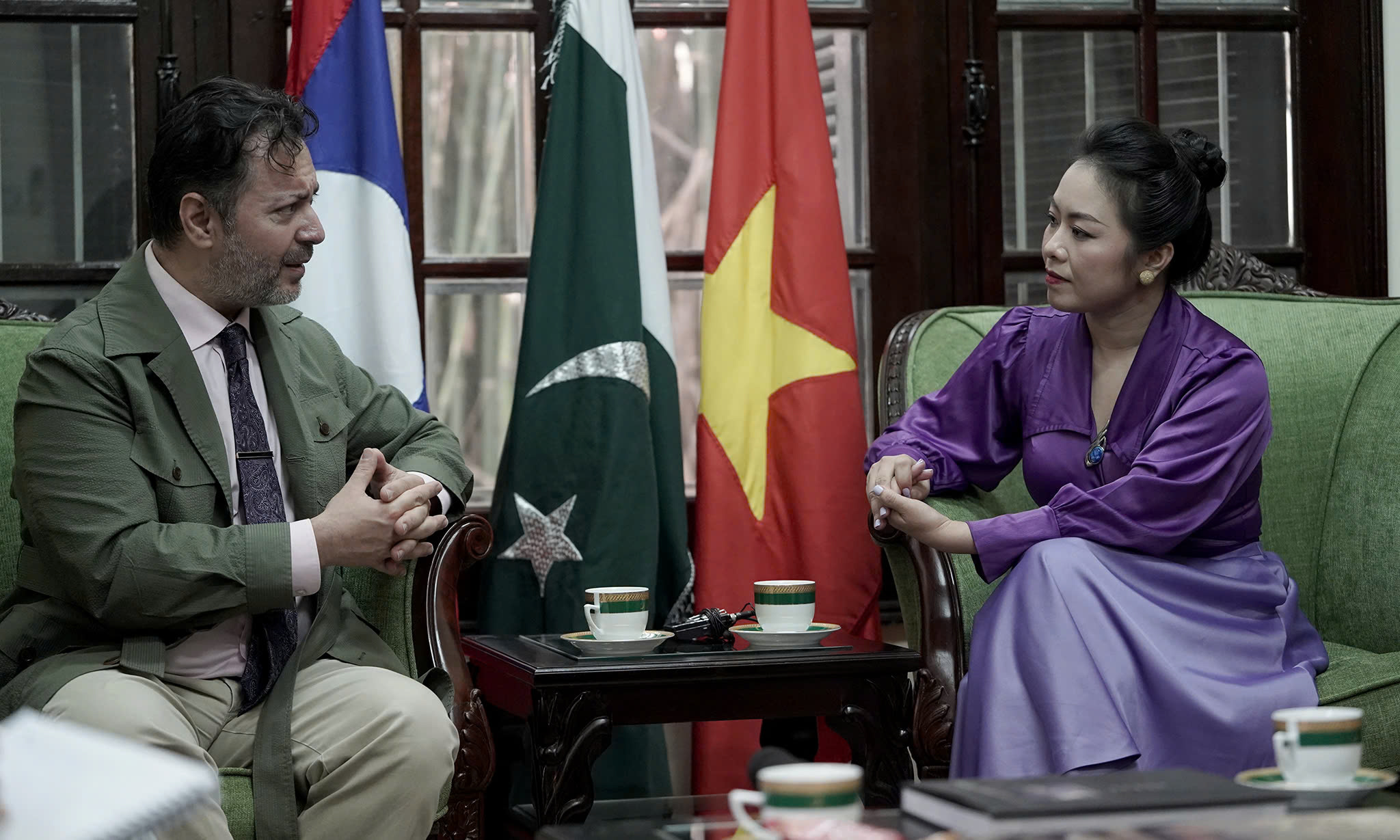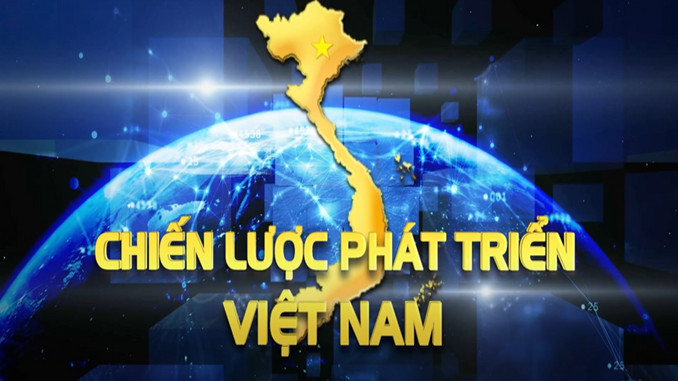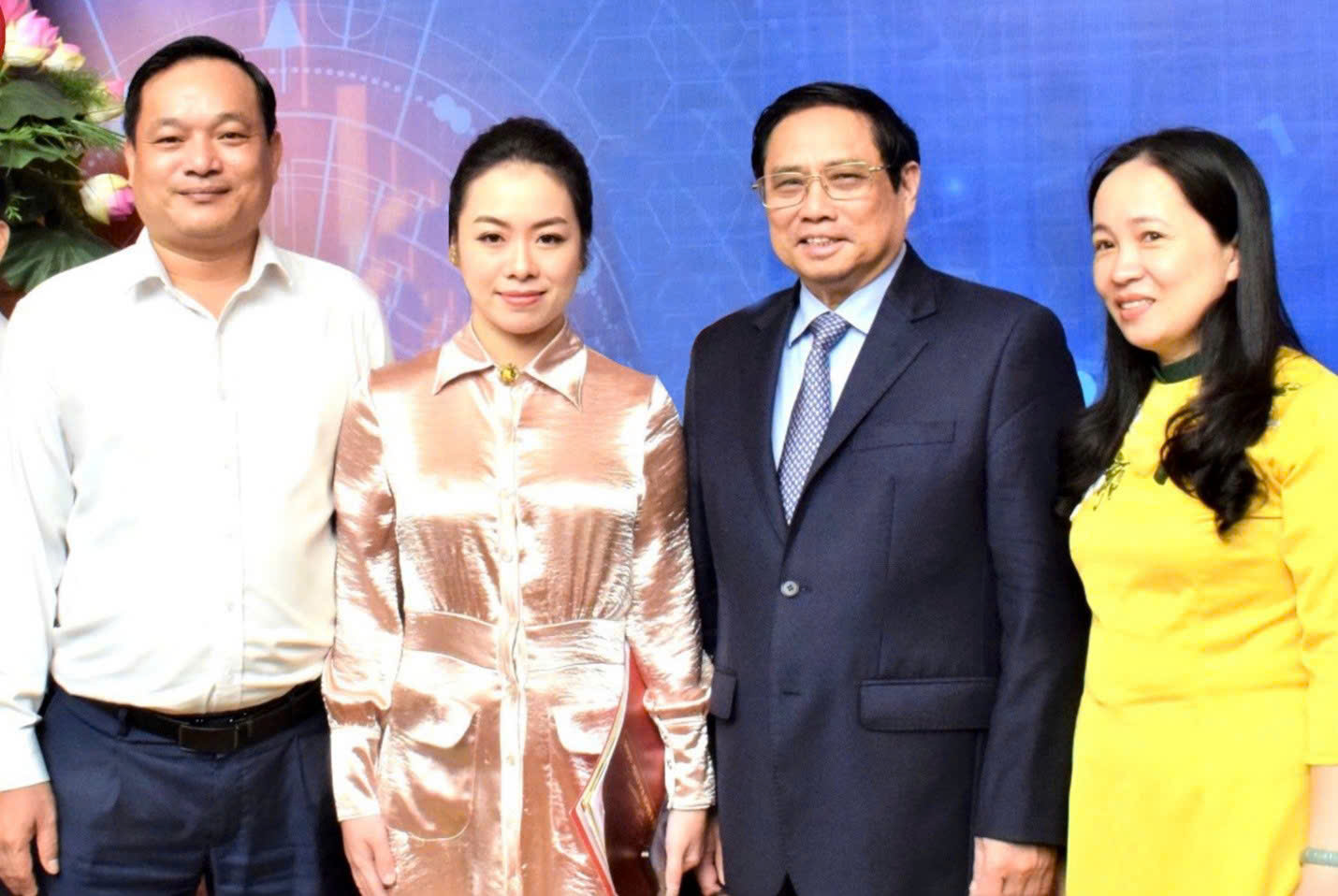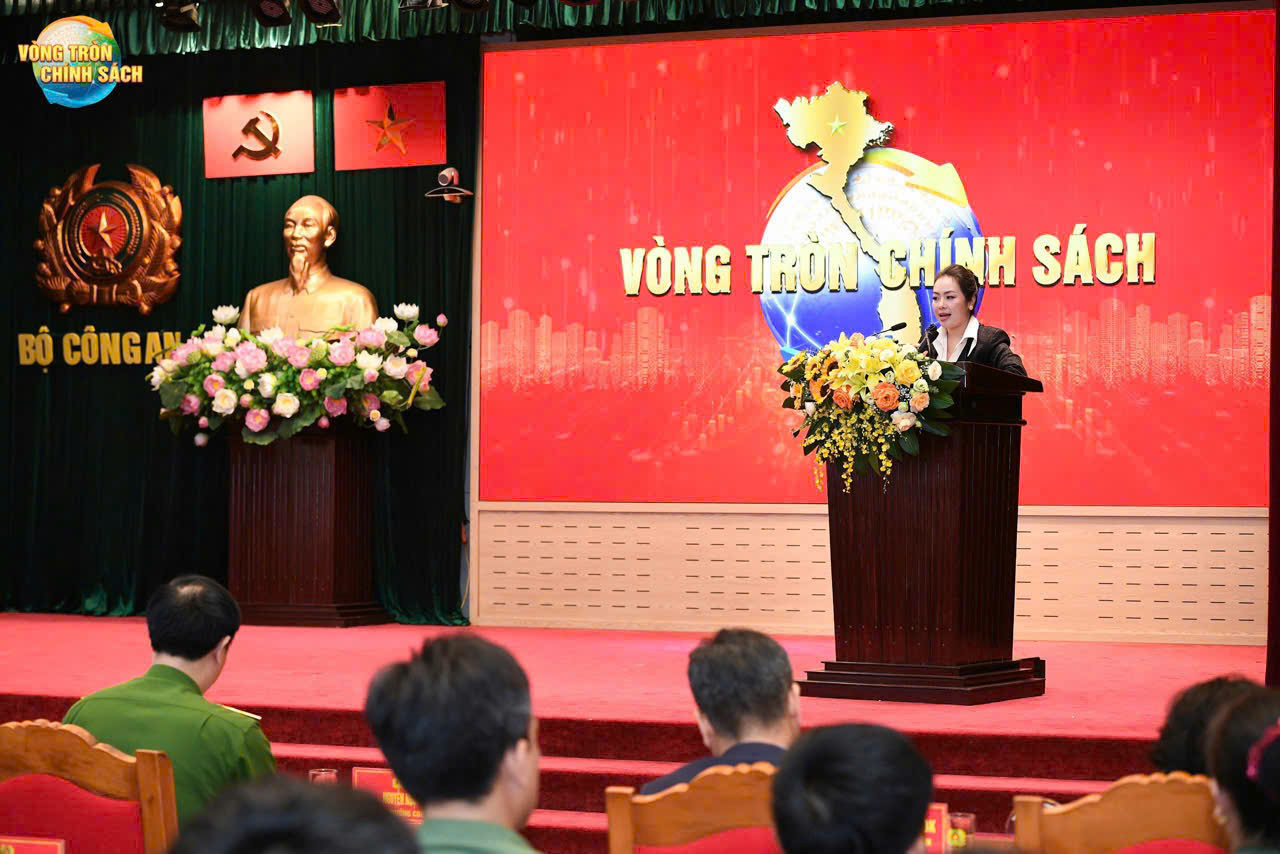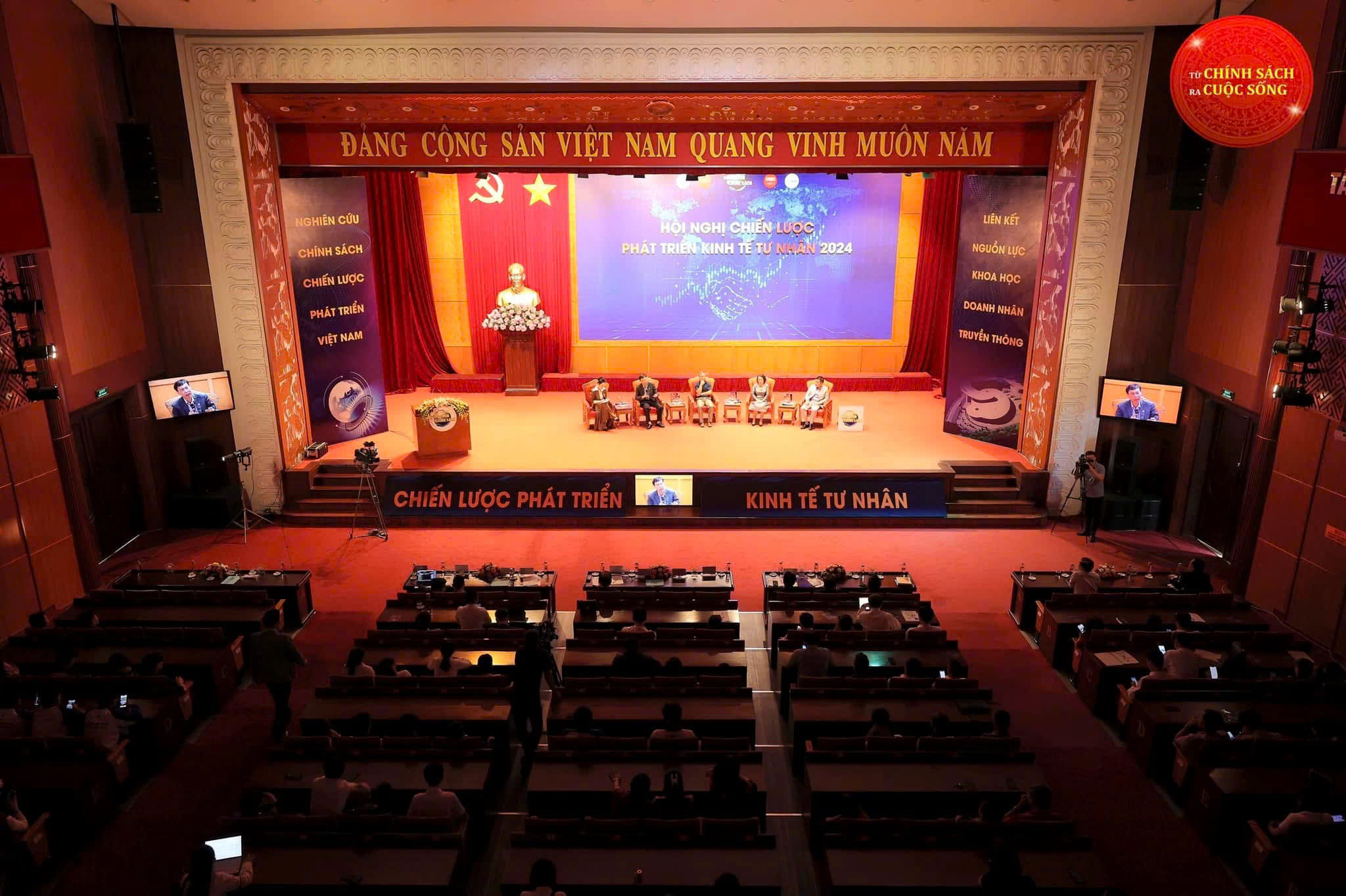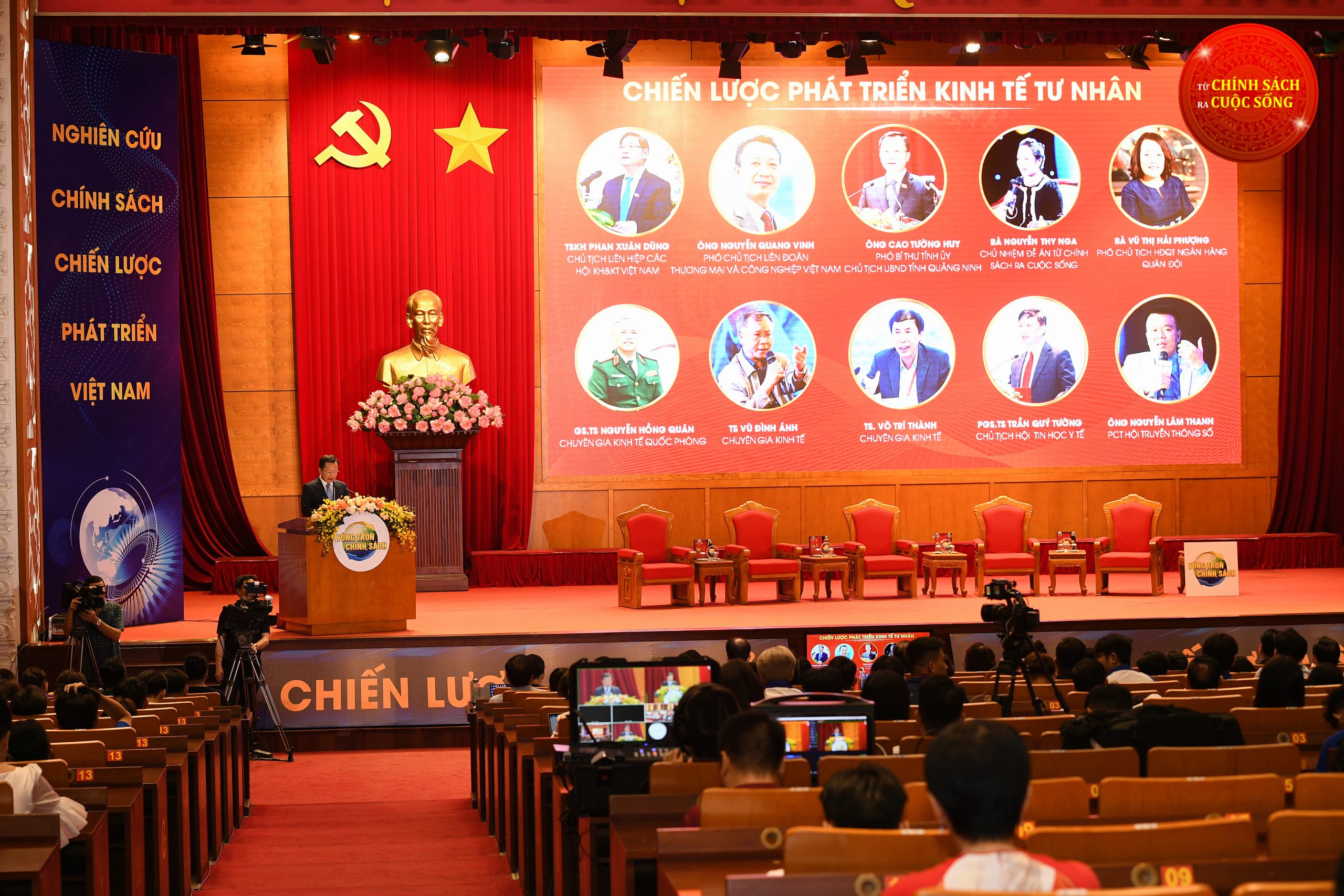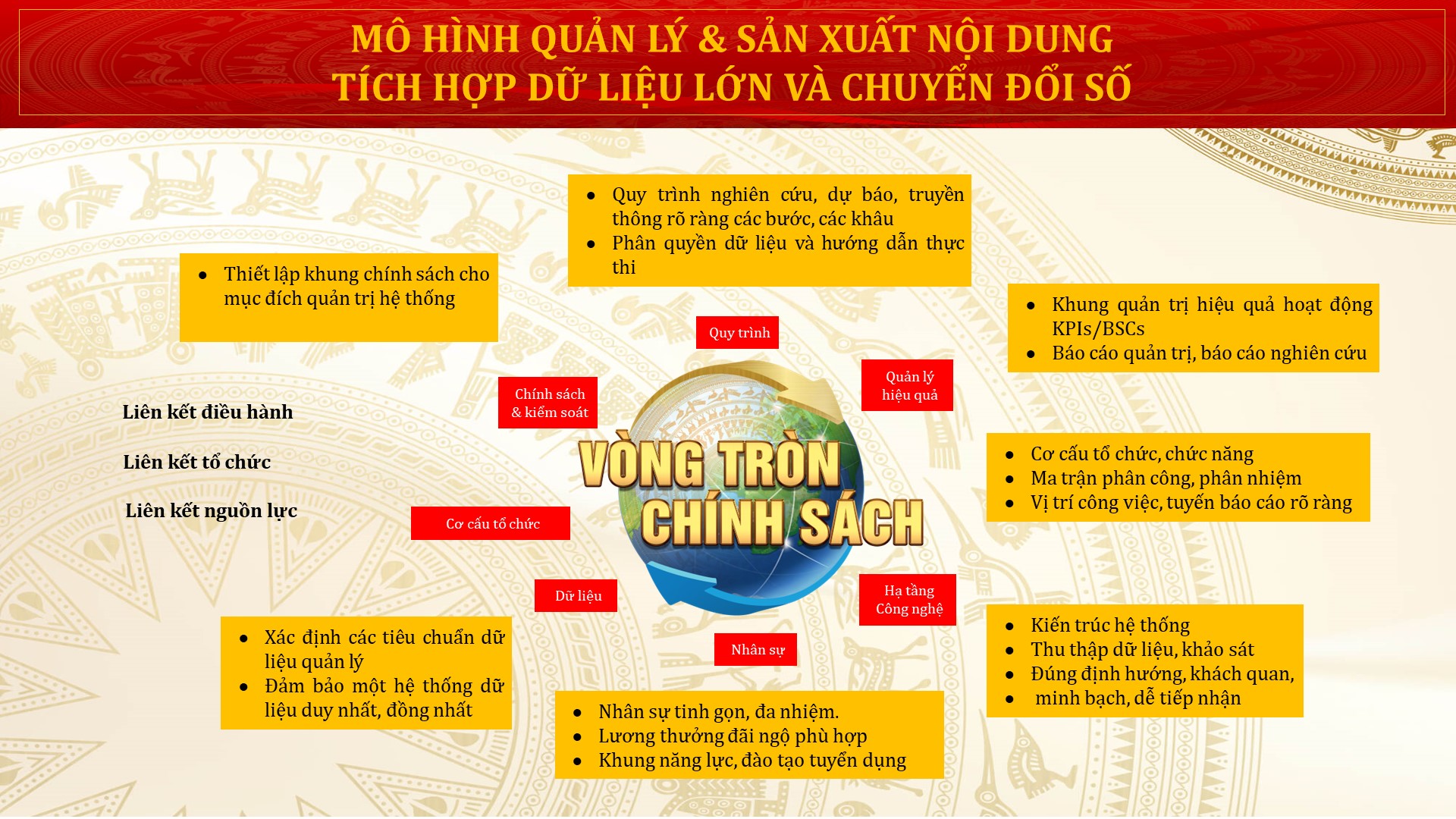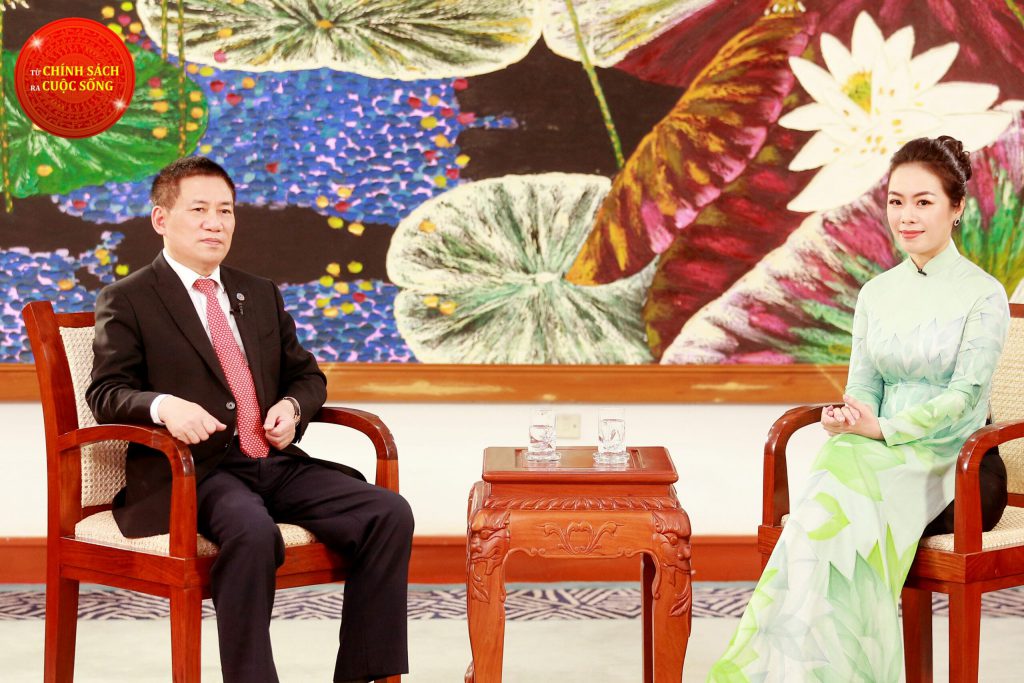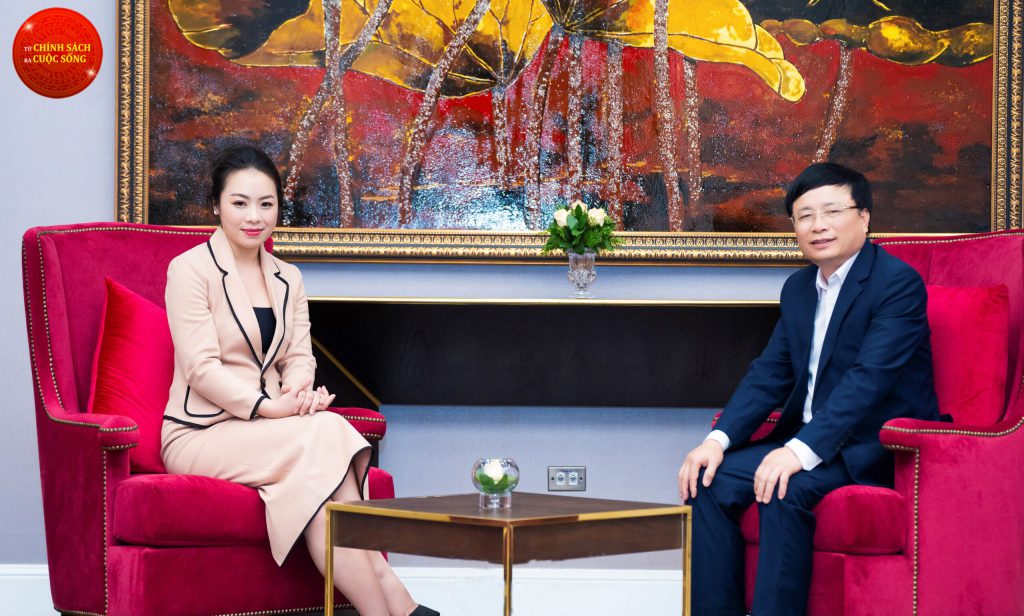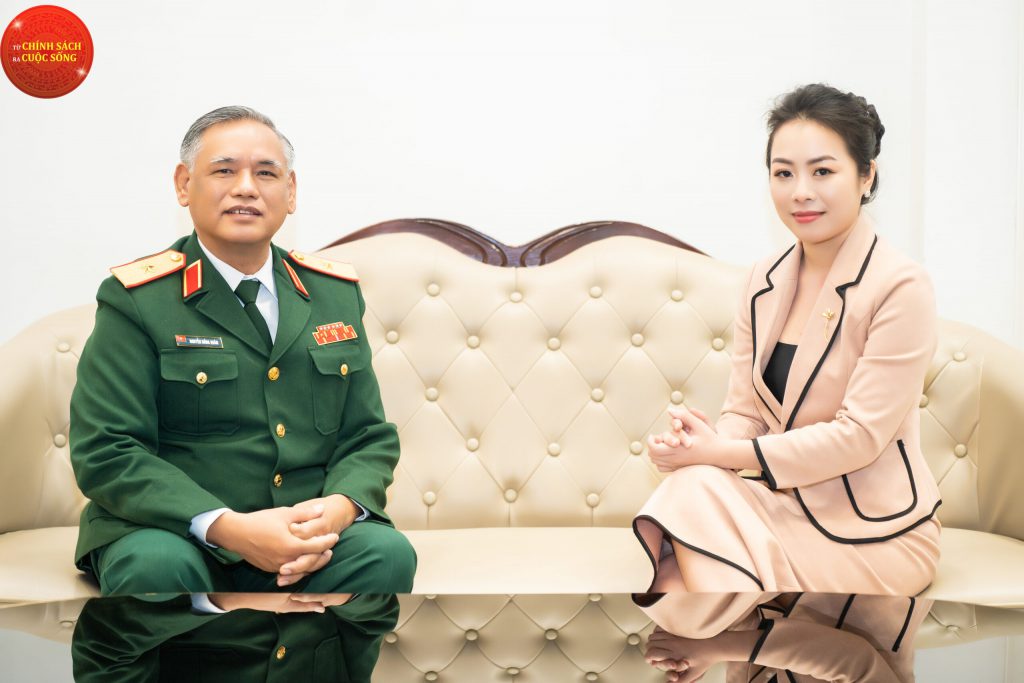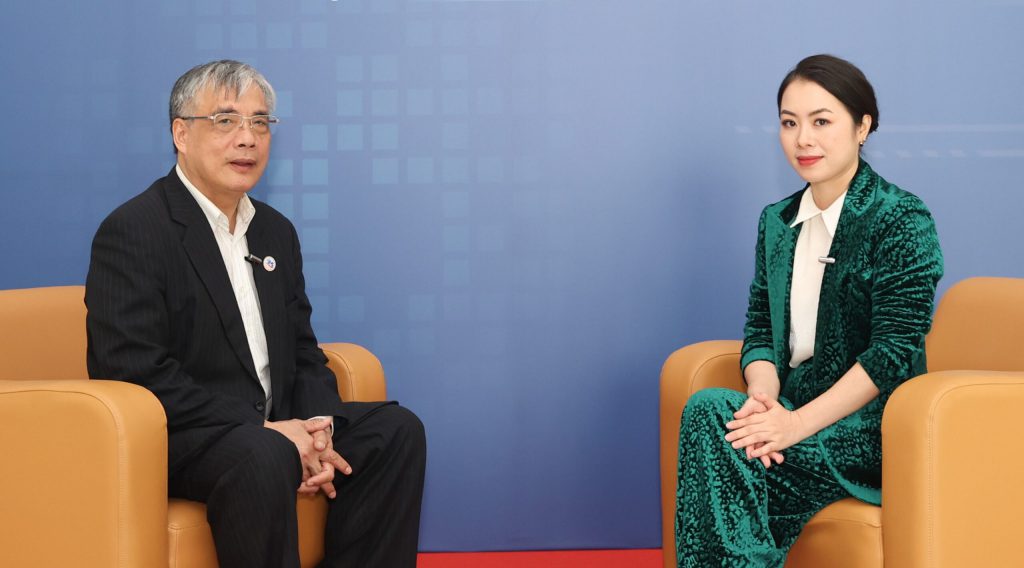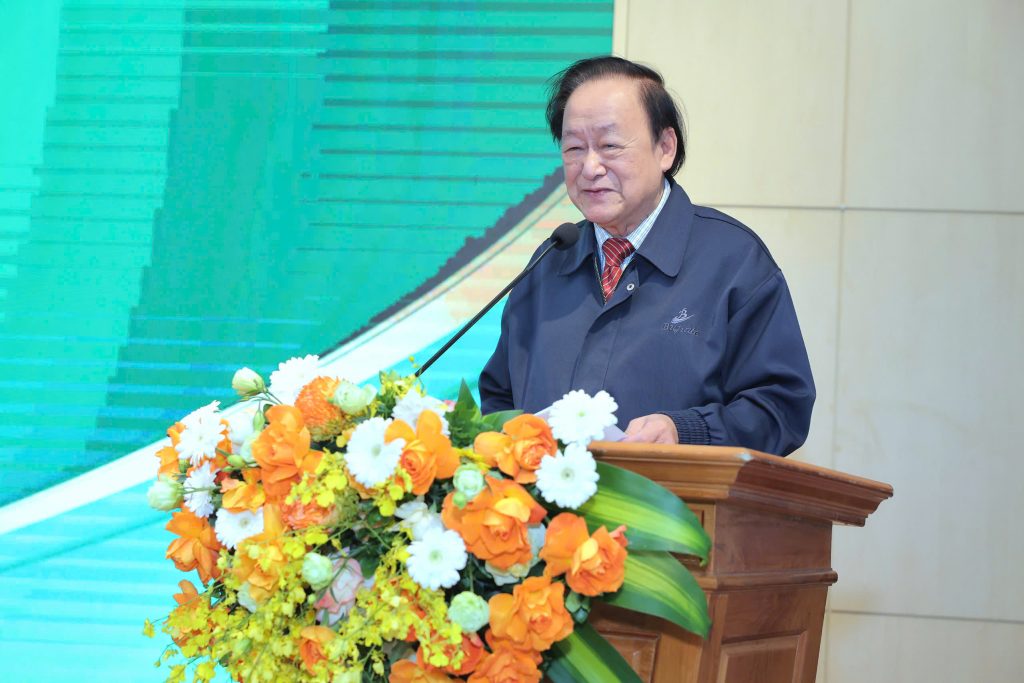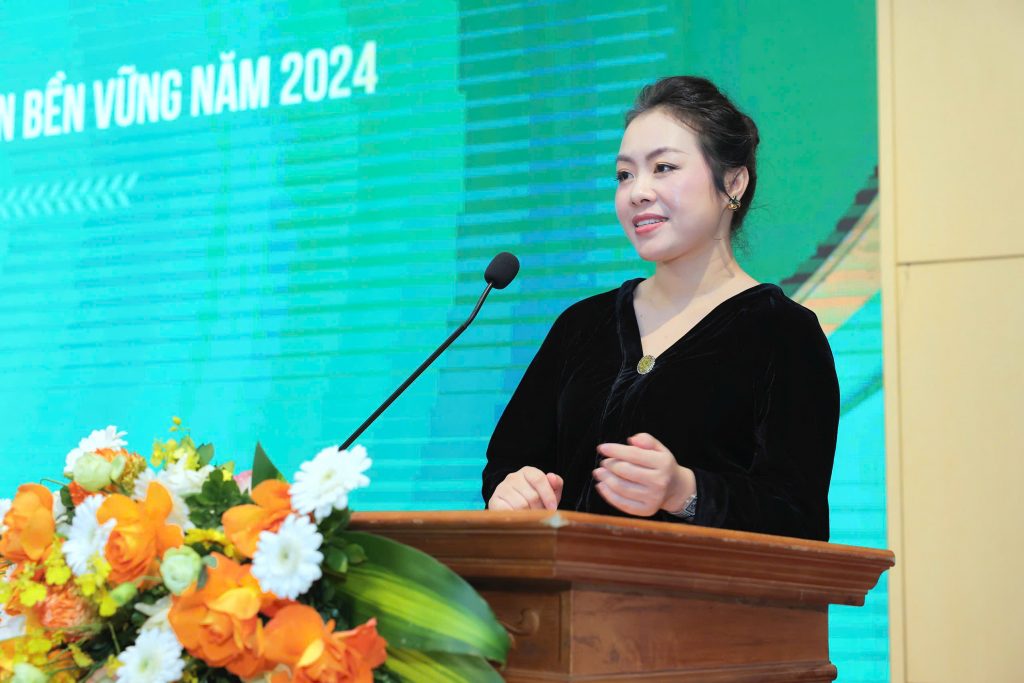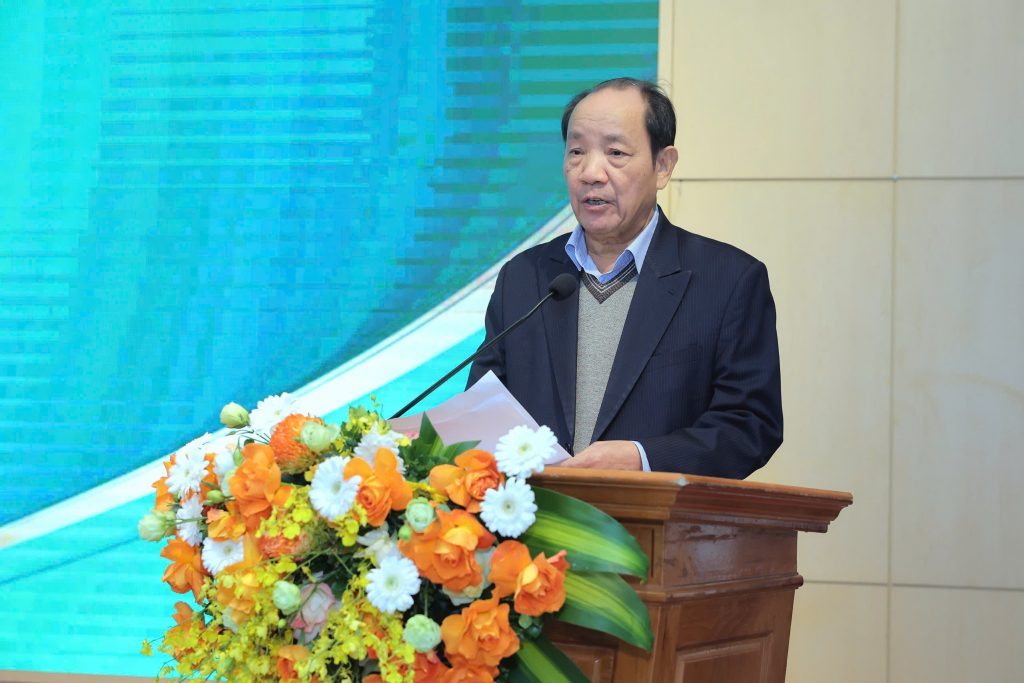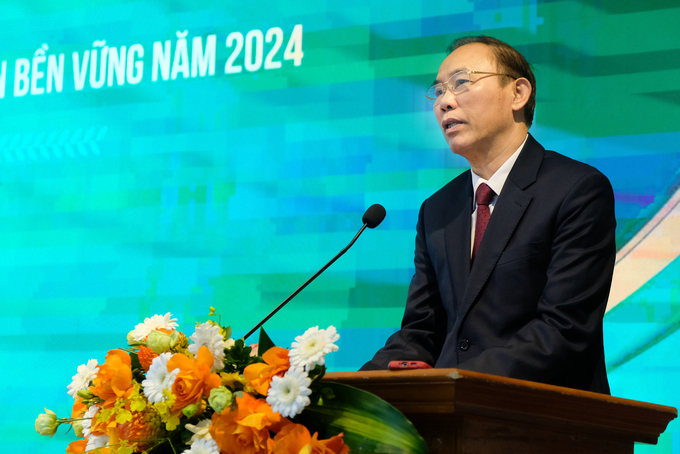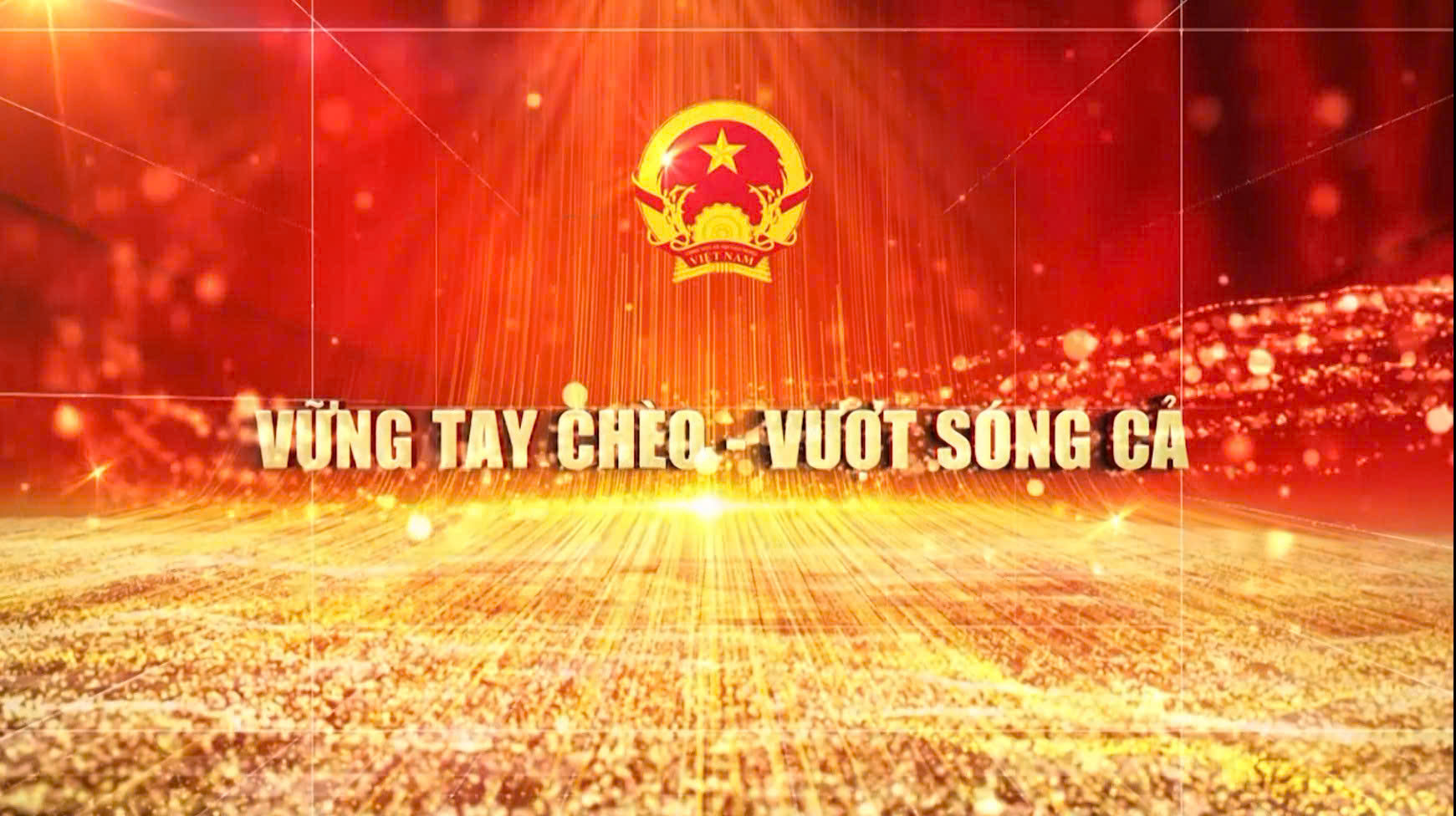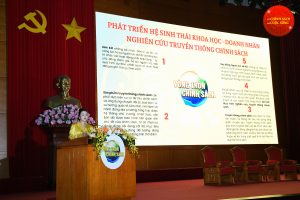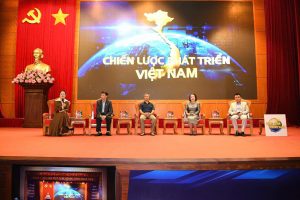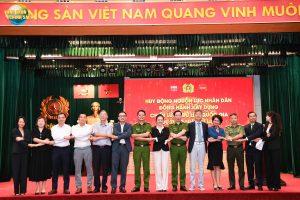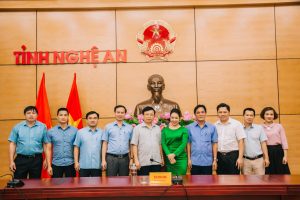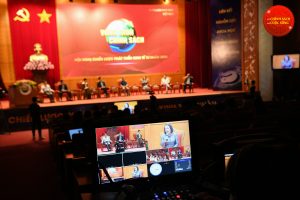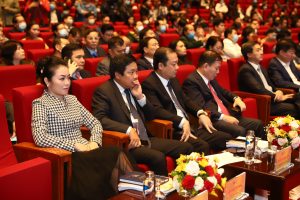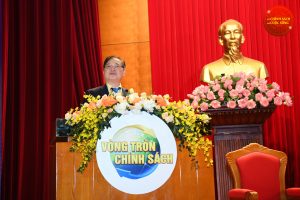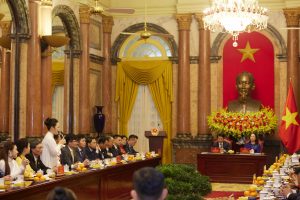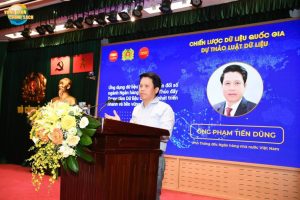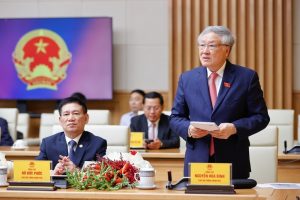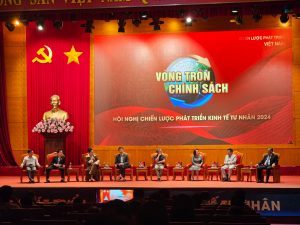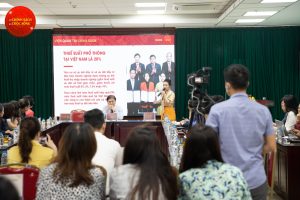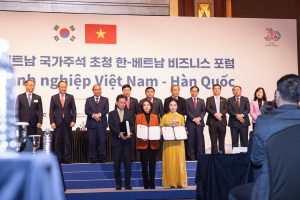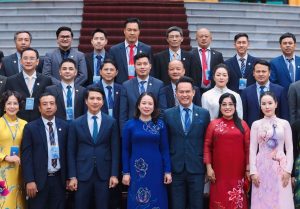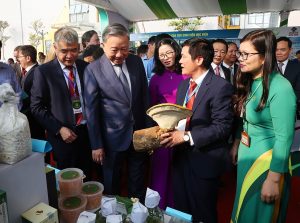
The Ambassador of Pakistan to Vietnam, Mr. Kohdayar Marri and Prime Minister Pham Minh Chinh | Nhat Bac
Vietnam–Pakistan Trade Development Strategy
Pakistan is one of Vietnam’s most important trade partners in South Asia. In 2024, bilateral trade turnover between the two countries reached USD 850 million, an increase of 20.5% compared to 2023. Of this, Vietnam’s exports to Pakistan reached USD 522.4 million (up 35.1%), and imports from Pakistan amounted to USD 327.7 million (up 2.8%).
Both countries possess strategic geographical positions, a young population, large markets, and are strongly oriented towards green growth and digital transformation models. Connecting cooperation in key areas such as high-tech agriculture, logistics, education, science and technology, innovation, and cultural exchange will form a solid foundation for a future comprehensive partnership.
Ambassador Extraordinary and Plenipotentiary of the Islamic Republic of Pakistan to Vietnam, Mr. Kohdayar Marri, had a working session to discuss strategies for developing bilateral relations with Director of the Institute for Policy Management, Ms. Le Nguyen Thien Nga. The focus was on priority sectors, global trends, and alignment with the Vietnam–Pakistan development strategy. Joint activities are to be guided by digital and green transformation strategies, promoting bilateral trade through flagship products and mutual support for expanding into global markets.
Ambassador Kohdayar Marri and Director Le Nguyen Thien Nga exchanged views on Vietnam’s policy orientations and trade promotion trends in the new era. They emphasized the importance of sharing investment promotion experience, supporting businesses as a long-term linkage platform, initially focusing on agriculture, science and technology, and cultural and educational exchanges.
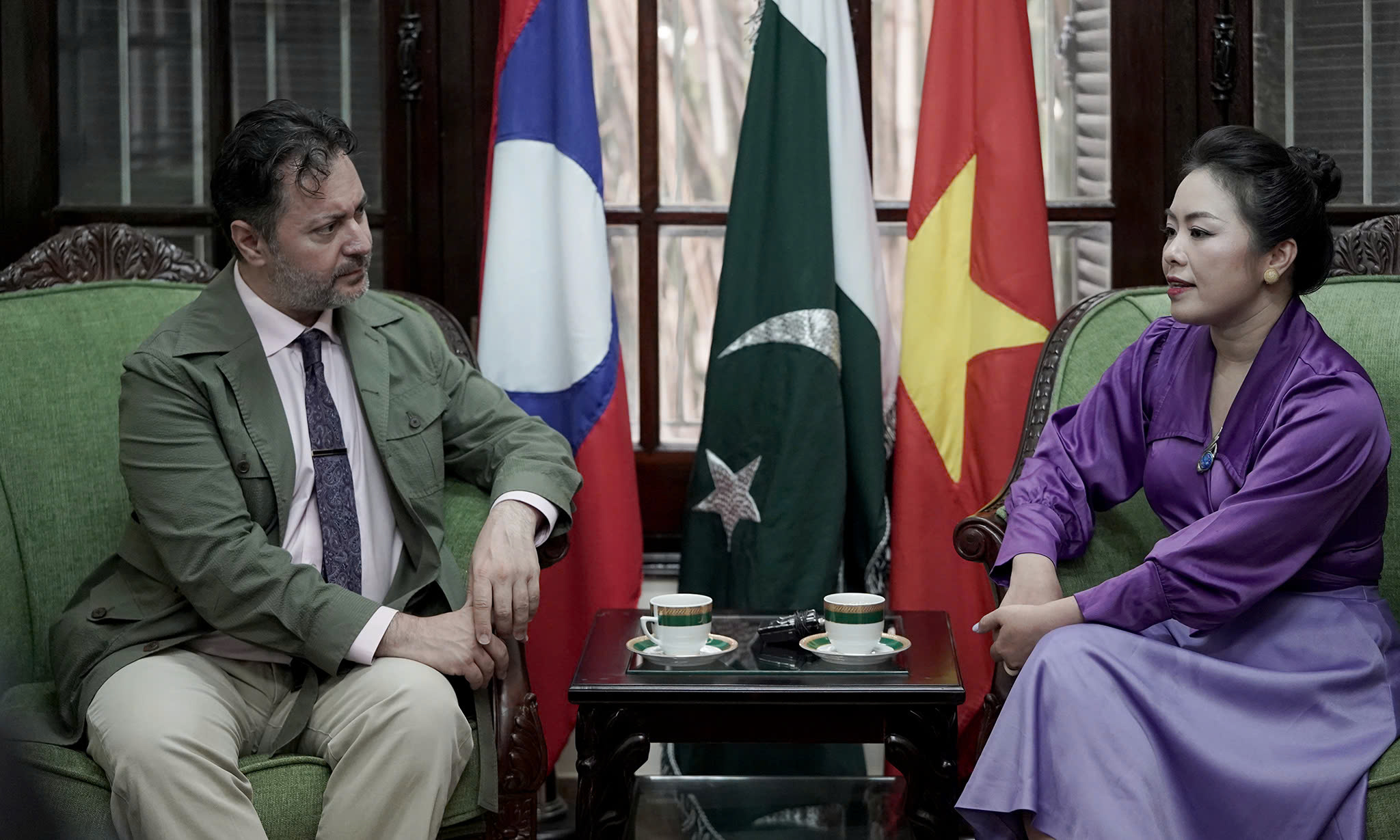
The Ambassador of Pakistan to Vietnam Mr. Kohdayar Marri and Director Institute of Policy Administration Le Nguyen Thien Nga | Linh Linh – Bao Thang
Based on development goals and recent implementation of the National Data Strategy research series for the Government, the Institute for Policy Management proposes a flagship program to coordinate with Ministries and select appropriate localities in Vietnam. The Institute recommends that the Embassy refer to models developed for the Government and Ministry of Public Security under the National Data Strategy, to jointly lead surveys and listen to the needs of the business communities in both countries.
This includes organizing joint programs to explore cooperation opportunities in specific fields grounded in scientific research and integrated bilateral data, to jointly assess and select key sectors under digital and green transformation strategies, aiming to reach over USD 1 billion in bilateral trade in the near future.
TARGETING BILATERAL TRADE OF OVER USD 1 BILLION
Ambassador Kohdayar Marri is highly recognized for his efforts as a bridge between ministries, localities, and enterprises of both sides to further promote cooperation. He has also actively participated in many seminars and conferences, providing information on the Halal market in general and the Pakistani market in particular to Vietnamese institutions and businesses.
In his linkage efforts, the Ambassador hopes to soon resume bilateral cooperation mechanisms, starting with the Joint Trade Committee. He proposes that both sides strengthen economic-trade and investment cooperation, leverage each other’s strengths, and strive to raise bilateral trade turnover to over USD 1 billion. In addition, he calls for expanded cooperation in culture, education and training, tourism, and people-to-people exchanges.
Previously, during a meeting with Ambassador Kohdayar Marri, Prime Minister Pham Minh Chinh acknowledged the Ambassador’s contributions and expressed hope for Pakistan to actively resume bilateral mechanisms, starting with the Joint Trade Committee, and increase cooperation in economy, trade, and investment.
Prime Minister Pham Minh Chinh also appreciated Ambassador Kohdayar Marri’s efforts since assuming office to promote Vietnam–Pakistan cooperation, especially in culture, arts, and religion, contributing to enhanced mutual understanding.
The Prime Minister recalled outcomes from his meeting with Pakistani Prime Minister Shehbaz Sharif at the 8th Future Investment Initiative in Saudi Arabia. He emphasized that Vietnam and Pakistan have great cooperation potential that should be fully tapped to make bilateral relations more substantive and contribute to peace, stability, and cooperation between South Asia and Southeast Asia, as well as the broader Asia-Pacific and Indian Ocean regions.
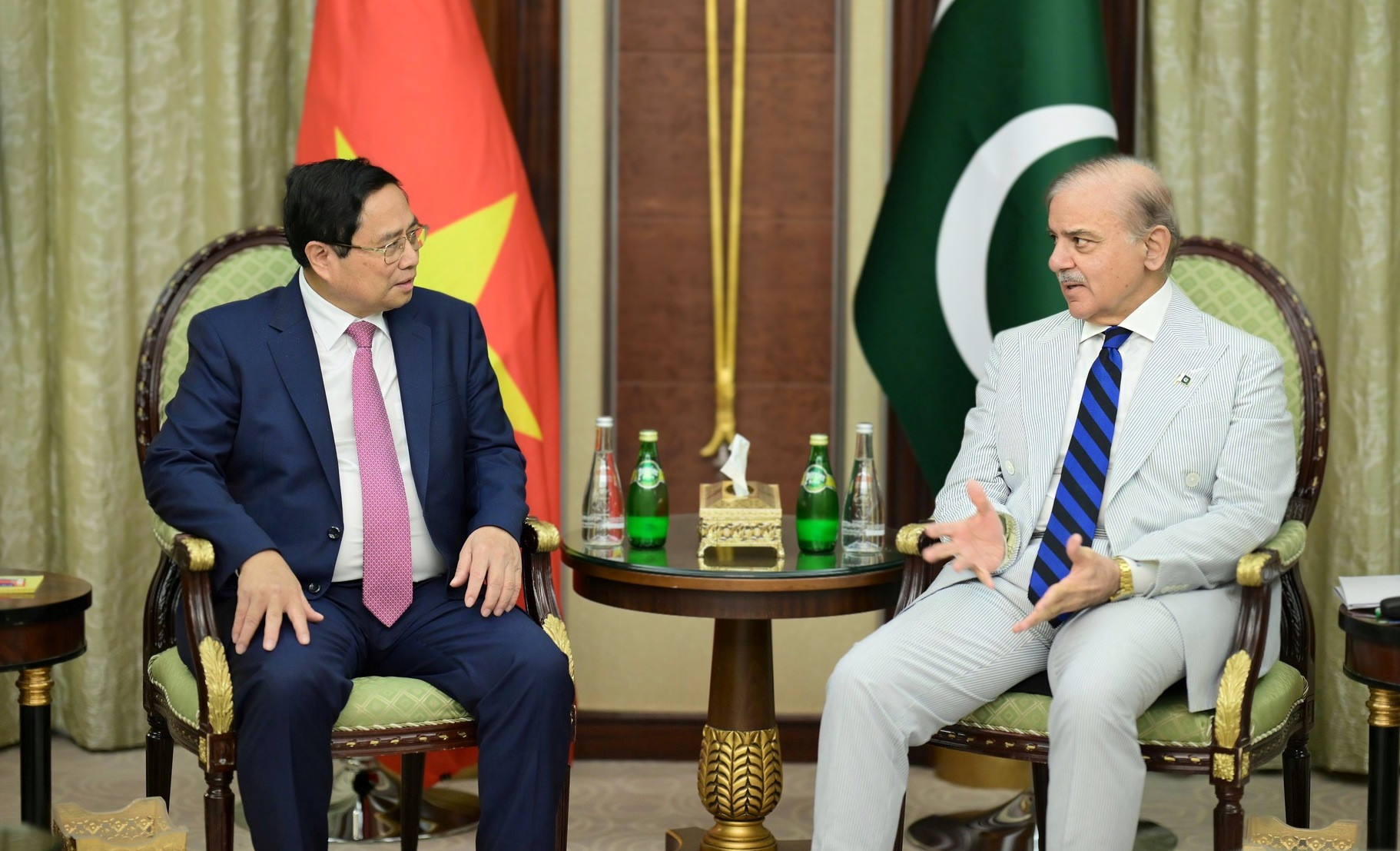
Prime Minister Pham Minh Chinh Meets with Pakistani Prime Minister Shehbaz Sharif | Nhat Bac
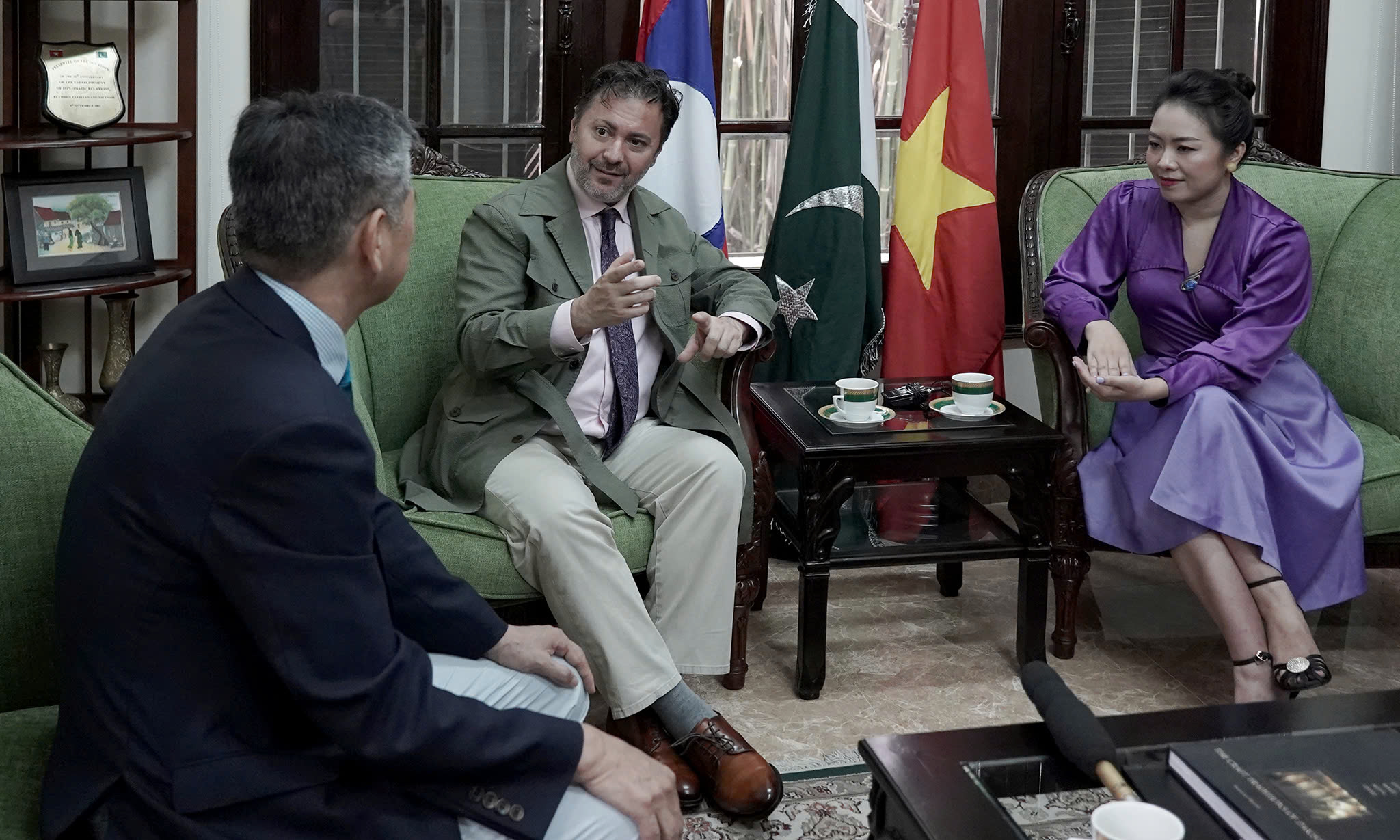
Among 149 countries and territories, South Korea is the largest investor in Vietnam with 10,128 projects. As of early 2025, Korean businesses have invested more than USD 92 billion in Vietnam.
Mr. Lee Jong Kook, National Director of Green Asia Network and former General Director of Lotte Vietnam, was invited by the Institute Director to the working session. From the perspective of a foreign investor and builder of Lotte in Vietnam, as well as an advisor to Korean business groups investing in Vietnam, Mr. Lee Jong Kook and the Ambassador discussed experiences in building business networks in Vietnam.
The Ambassador expressed enthusiasm in cooperating with the Institute for Policy Management within the Green Asia Network (GAN) framework in Vietnam.
This is an important collaboration to promote green growth and sustainable development, affirming the Ambassador’s commitment to sustainability. GreenAsia Network focuses on green initiatives, environmental protection, and international cooperation to address current environmental and social challenges. Participation in this network and collaboration with Vietnamese localities on reforestation projects will open up opportunities for resource sharing, business connectivity, and green project implementation across Southeast Asia.
Over its 25 years of development, the network has reforested barren lands, developed agriculture, and improved livelihoods in countries such as Mongolia, Myanmar, and South Korea.
The Institute for Policy Management serves as the focal point and master coordinator of GAN in selected countries, starting with Vietnam. Ambassador Kohdayar Marri also proposed finding a coordinator in Pakistan to increase opportunities for green and sustainable development.
The Ambassador proposed that the Director provide strategic counsel to enhance the Embassy’s role as a key facilitator in supporting business activities, strengthening the exchange of vision, objectives, and market development orientations, as well as identifying bilateral trade promotion opportunities through active participation in joint programs and regularly scheduled business engagement meetings.
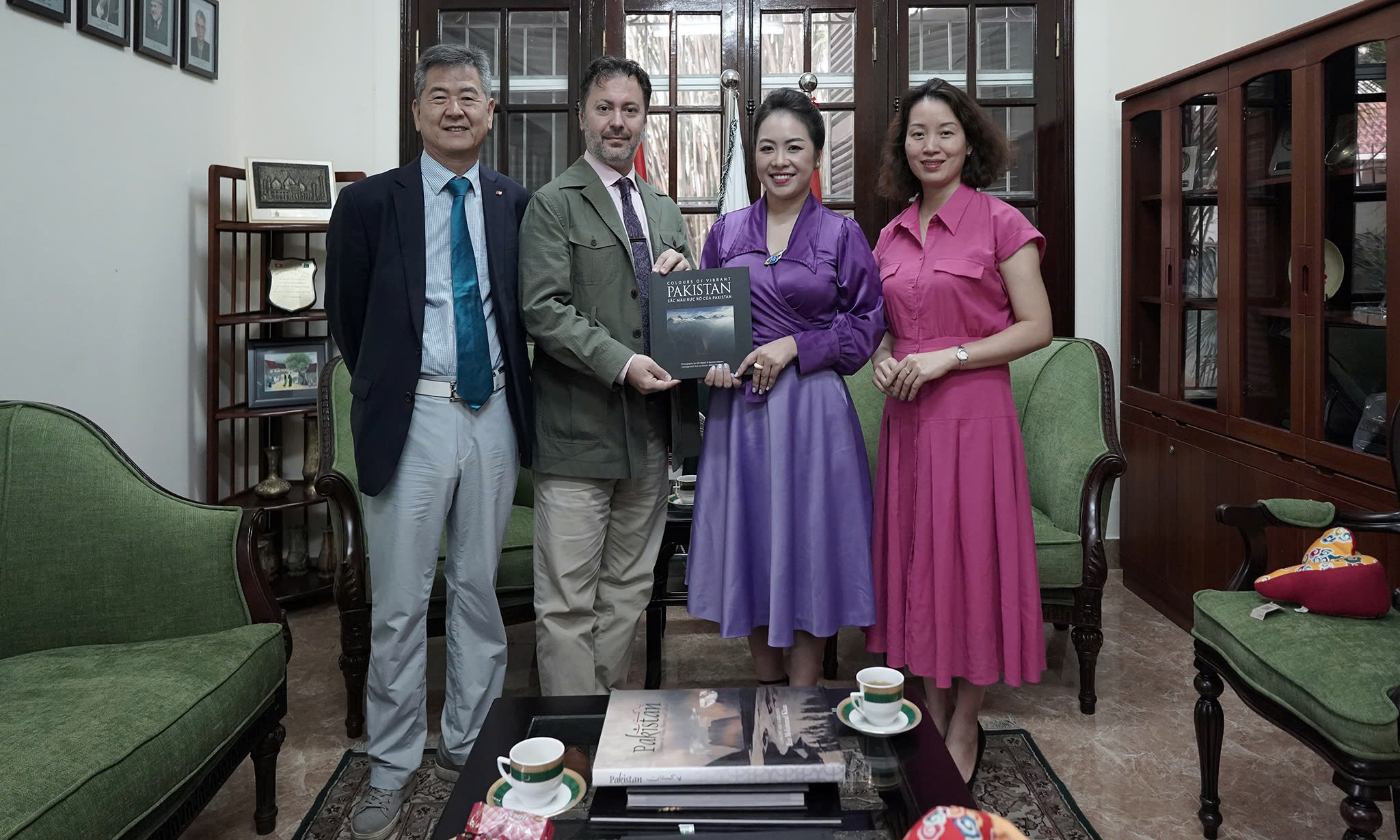
Mr Lee Jong Kọok, Director Country of Green Asia Network, The Ambassador of Pakistan to Vietnam Mr. Kohdayar Marri and Director Institute of Policy Administration Le Nguyen Thien Nga, Mrs Thuy Nga, Ambassadorial Assistant | Linh Linh – Bao Thang

Mr. Ambassador Kohdayar Marri and Prime Minister Pham Minh Chinh | Nhat Bac

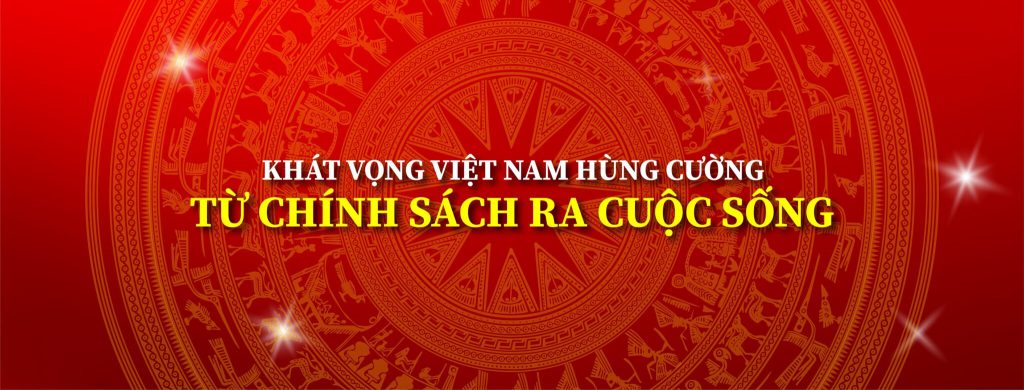
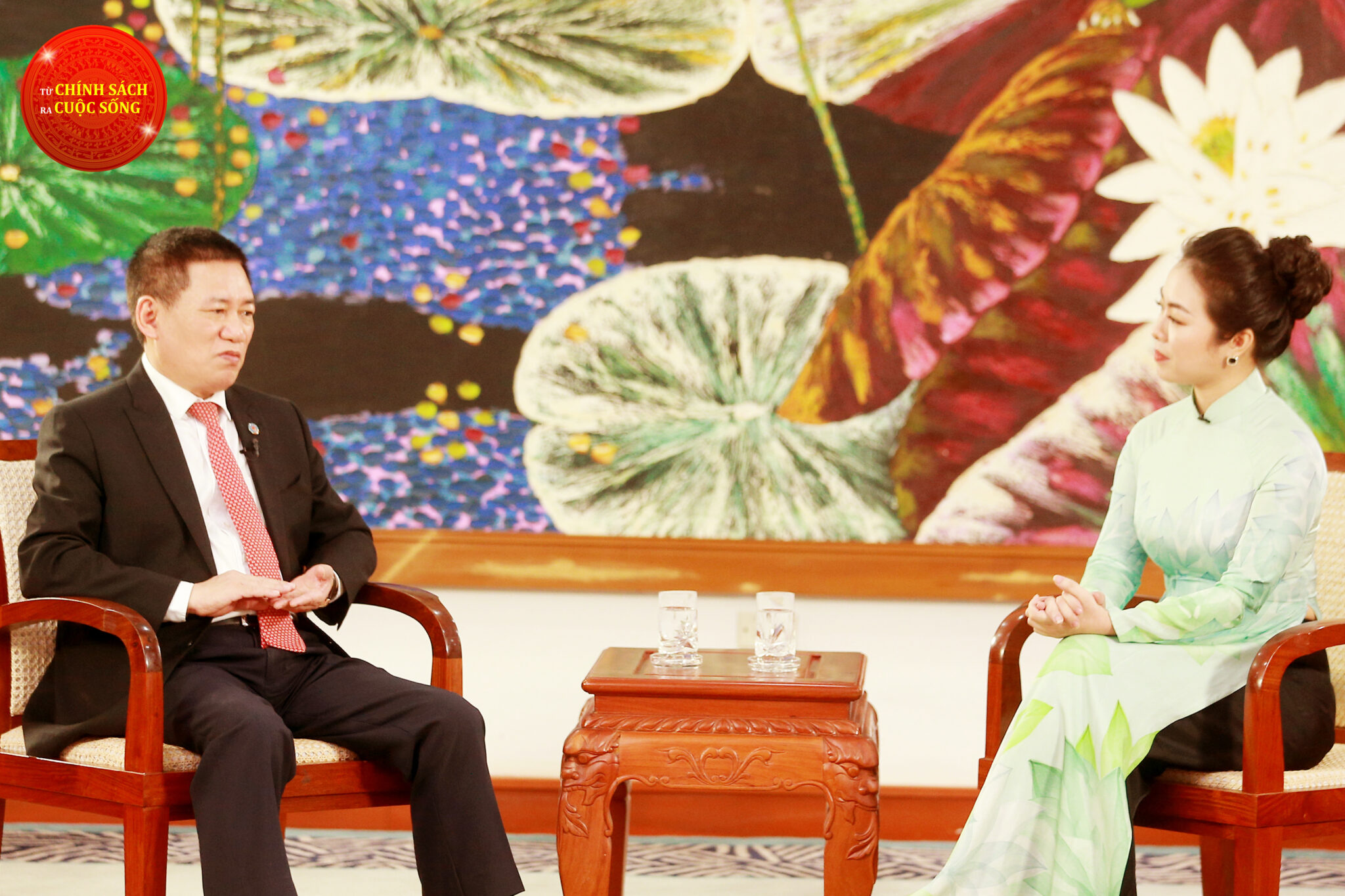
Deputy Prime Minister Hồ Đức Phớc with Chief Researcher of the National Data Strategy, Le Nguyen Thien Nga

